
The Australian Competition & Consumer Commission (ACCC) has called on the government to consider a compensation scheme for passengers with delayed or cancelled flights. This could work similarly to existing schemes in Europe and Canada, where airlines are required to pay cash compensation when they disrupt their passengers’ travel plans.
Consumer group CHOICE has been advocating for an airline compensation scheme in Australia for some time. In its most recent report into airline competition in Australia, released earlier this week, the ACCC agreed there was merit in further discussing the proposal.
“Some advocates have called for the introduction of specific consumer compensation entitlements for delayed or cancelled flights. While consultation would be required to assess the impacts of such a scheme on the market and consumers, the ACCC considers there is merit in the government further considering and consulting on this,” the report said.
“The ACCC also strongly advocates for reform to the consumer guarantees under the Australian Consumer Law to make it a contravention for businesses to fail to provide a remedy for consumer guarantees failures, when they are legally required to do so.”
So, what would a flight delay compensation scheme involve, what do the airlines have to say, and is it a good idea?
What could a compensation scheme look like?
Of course, the details of any compensation scheme would depend on how the government sets it up. But we can turn to other countries that do have such models to get an idea of how it might work.
In the European Union, for example, airlines must pay cash compensation to passengers (not just offer a refund) if they cancel or significantly delay a flight at short notice for reasons within their control. There are also minimum compensation amounts for passengers who are denied boarding due to overbooking. Canada has similar air passenger protections.
As well as monetary compensation, the European Union and Canada require airlines to look after their passengers with minimum standards of treatment. For example, in Canada, passengers must be regularly kept updated throughout a rolling delay. If a flight is delayed overnight, airlines must also provide accommodation, food and transport.
Airlines will lobby hard against this proposal
Naturally, Australian airlines are opposed to this idea. They will almost certainly lobby against it. Even if they aren’t successful with blocking the legislation entirely, they’ll at least do their best to make the scheme weak.
Airlines claim this would increase airfares, and point out that many delays are caused by factors beyond their control.
In Europe and Canada, though, airlines only need to pay compensation for delays or cancellations within their control. Airlines don’t need to pay out for disruptions caused by weather, air traffic control or other factors outside their control. So that’s not really a valid argument against a compensation scheme.
Airlines may decide to increase airfares slightly to cover the increased costs involved. But airfares haven’t massively increased in Europe or Canada since compensation schemes were introduced.
What has increased in Europe and Canada is on-time performance and the proper treatment of passengers, since the airlines are held more accountable for disruptions. Airlines bound by this legislation oversell less, and have more slack in their schedules to minimise the chance they’ll have to pay out compensation for disruptions they have caused.
Currently, the ACCC believes domestic airlines don’t have enough incentive to improve their reliability and customer service. And the lack of effective domestic competition means customers who wish to vote with their feet have limited alternatives.

Even if airfares become slightly more expensive in Australia, it could be a small price to pay if it forces airlines to improve things for customers. Besides, it can be even more expensive for passengers dealing with a lengthy flight delay or last-minute cancellation.
Most of the costs of providing compensation would ultimately be returned to passengers anyway. Those affected by major disruptions would be the beneficiaries. They would be able to use that money to cover the inconvenience and real costs incurred from those disruptions. This is basically how insurance works, and airlines happily sell insurance to their customers.
Admittedly, flight delay compensation scheme could disproportionately affect smaller airlines like Bonza. Startup airline Bonza has only a small fleet and has experienced some operational difficulties lately, resulting in many delayed flights. To avoid putting smaller airlines out of business, the Canadian model requires small airlines to pay lower compensation amounts.
The Airline Customer Advocate isn’t enough
Over recent years, the ACCC has noticed a significant increase in complaints relating to airlines – even after accounting for temporary COVID-related issues. They say many people were contacting the ACCC simply because they couldn’t reach an appropriate person at the airline who they could discuss their issue with. That is unacceptable – but if the AFF forum is any indication, it’s a very common problem.
Australia already has an ombudsman of sorts – the Airline Customer Advocate. But it’s funded by the major airlines, has no actual power and is not effective.
“The ACCC considers that there is a clear need to introduce a new system for resolving disputes between airlines and consumers. The current industry-based scheme, the Airline Customer Advocate, is generally ineffective. It should be replaced with a truly independent external dispute resolution ombuds scheme which has the ability to make binding decisions,” the ACCC report said.
Have your say
It’s clear that Australia needs stronger regulation to ensure air passengers are treated fairly. We know this from the events of the past few years. But is a compensation scheme for disrupted airline passengers the way to go?
There are many nuances to this debate and there are strong arguments on both sides. But, as a country, it’s probably about time that we at least have this debate.
What do you think about the idea? You can share your thoughts on the Australian Frequent Flyer forum:
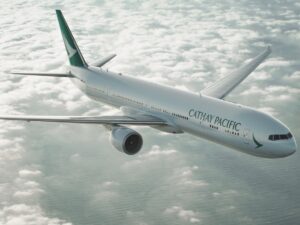

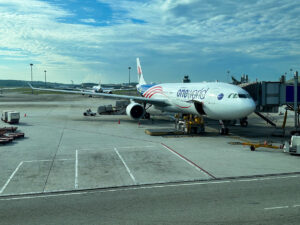
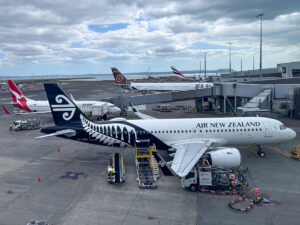


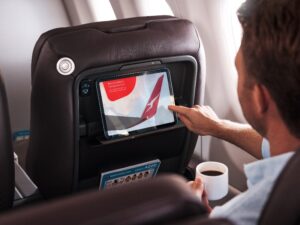
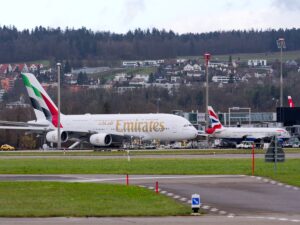
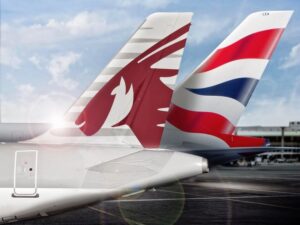
































































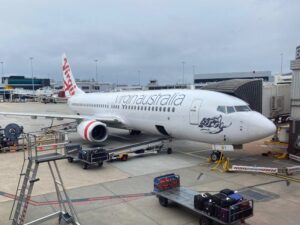





Community Comments
Loading new replies...
Join the full discussion at the Australian Frequent Flyer →